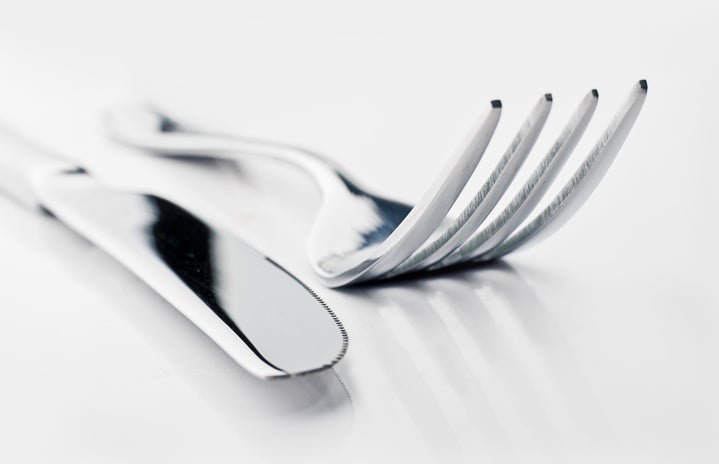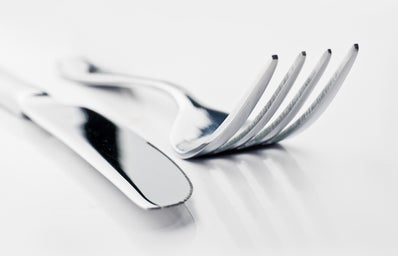Transitioning into college can be a scary time. You can’t help but think about the rigorous classes, the family and friends you’ll miss, and maybe even the fact that you could gain unwanted weight. One of the most common things people warn about during freshman year of college is the dreaded Freshman 15. With an unlimited food supply, free food events around every corner, and the freedom to eat any and all of it, it’s not completely farfetched to gain weight in your first semester or year of college. While weight gain can be jarring, it is not the end of the world – the size of your body does not define your worth. Most high school age girls are at a very thin weight to begin with, thanks to sports practices and healthy home-cooked meals, and extra weight usually will not impede health. However, coming into college, I already weighed the most I ever had (by a lot) and knew that extra weight gain was not an option for me to feel my best. I saw college as a time to use my newfound food freedom to develop strong, healthy habits, and get myself feeling well again. So far it has worked splendidly – I feel better than ever and have successfully and healthily lost 15 pounds in my first semester (and another 5 in the second). If you’re looking to lose some weight or start your college experience off on the right foot, read on for my tips!
Photo via art-sheep.
1) Move Your Bod-ay!
For most of my life I was a dancer, but as I came to college I knew I would not be dancing anymore, and needed to find a replacement exercise that I liked. My mother is a workout instructor and has introduced me to many workout styles throughout my life, one of my favorites being yoga. When I came to campus, I searched for yoga studios that I liked and eventually got a membership for one that has classes in hot yoga and hot pilates. I try to go around four times a week, and I genuinely love being there. Working out ups your endorphins, and a good sweat helps eliminate toxins and burn calories for when you needed that cookie… or two. Another way that I move my body throughout the day is by walking. I am fortunate enough to live in a big walkable city, and I try to walk everywhere as much as possible. I also never take elevators and only walk up the stairs on campus, which gives you a surprisingly rigorous small workout in the middle of your day.
2) Mindfulness
One of the biggest problems I identified with my own eating habits was mindless eating. I would eat a cookie and pretend like it meant nothing calorically. If my friends wanted to go out to eat, I would join them. I wasn’t listening to if I was hungry, if I really wanted to eat the food, how it was prepared; none of it. I made it my personal mission to really listen to my body. I would only eat if I was hungry and stop eating when I was full. One of the biggest things that helped me with mindful eating was going vegetarian. It made me think about how my food was sourced. I would often make food myself, and I could no longer just eat anything whenever, there were rules to my diet – rules I enjoyed. Tracking my calories on an app helped me be more mindful as well. Using a calorie tracking app told me not only how many calories foods had, but what nutritional benefits/lack thereof an item had. Having to track everything I ate deterred me from mindless eating and taught me about the foods I ate. These apps aren’t just for weight loss, but can also help you maintain your current weight.
3) Learn How to Make a Healthy Meal
On a daily basis the only meal I eat in a dining hall is lunch, but I know that most college freshman don’t have access to a full kitchen and that groceries can be expensive, so most meals are eaten in a dining hall. My rule of thumb in a dining hall is to make your plate 50% veggies, 25% protein, and 25% healthy whole grains– filling up on the veggies first. Most dining halls have all of these elements, and that model makes a meal easily accessible. For snacks, I try to incorporate healthy fats like nuts and nut butters, avocado, and olives, as well as fruit and protein like cheese or chickpeas. If you’re feeling overwhelmed, it’s always important to go back to the basics of protein, carbs, and fats, and always make sure your portions are appropriate and that you stop eating when you’re full. Now, while I usually try to eat fruit for dessert and steer clear of pizza, I am not a monster and, like everyone, I have cravings. We’re young and we should eat fun stuff sometimes! I try to follow the 80/20 rule where 80% of what I eat is really healthy, and 20% is not so much. (Everyone needs a night of bad sugary drinks followed by Taco Bell.) The beauty of moderation is that I feel great most of the time and still get to indulge when I need to.
Whether you just want to maintain your current weight or lose a couple extra pounds, I hope my tips were helpful! I have had a blast becoming a healthier version of myself and now love to read about nutritional theory and the ethics of vegetarianism. I am very proud of my personal growth over my first semester and a half at college and hope these tips can make you feel proud of yourself, too!

